What to Do After a Parent Dies: A Checklist After Losing a Parent
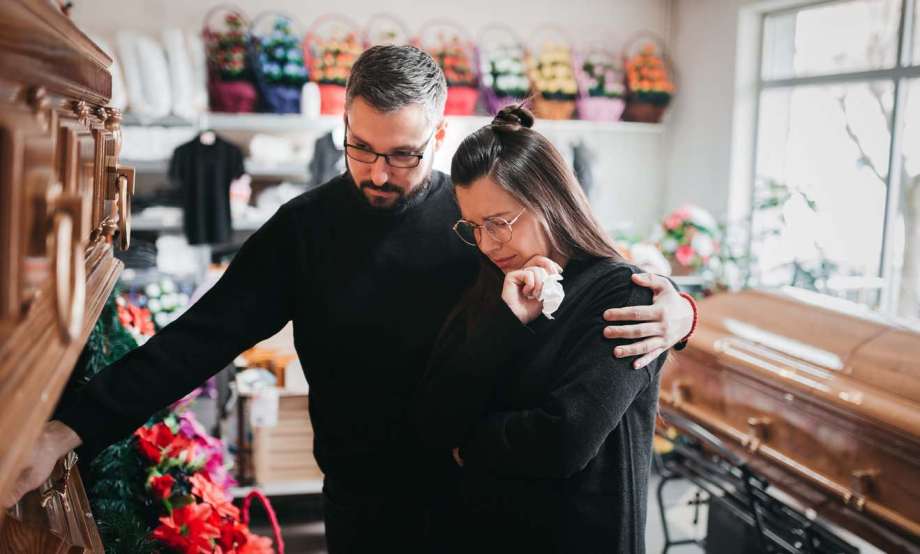
Losing a parent at any age is difficult. When you’re an adult who loses a parent, you not only have to deal with your grief but also many other issues. Funeral arrangements, insurance policies, and the probate process are among the many things that adult children have to take care of after losing a parent.
To help you naviage this difficult and confusing time we have created this downloadable Checklist for After the Loss of a Parent.
Below we go into detail about the important steps you should take after one or both of your parents die.
Things That Need to be Done Immediately After a Parent Dies
If you’ve never gone threw it before, it can be overwhelming as you still try to deal with your emotions. We’re going to take a look at some of the areas that adult children have to consider and tasks that need to be done after losing a parent.
1. Decide What You'd Like to Do with Your Loved One's Body
Some people have explicitly laid out their wishes for when they die. Some people wish to be buried, while others prefer cremation. If your loved one has carefully detailed plans, it’s important that you carry out their wishes. If they do not, you have three choices:
- Call a funeral home to arrange a burial
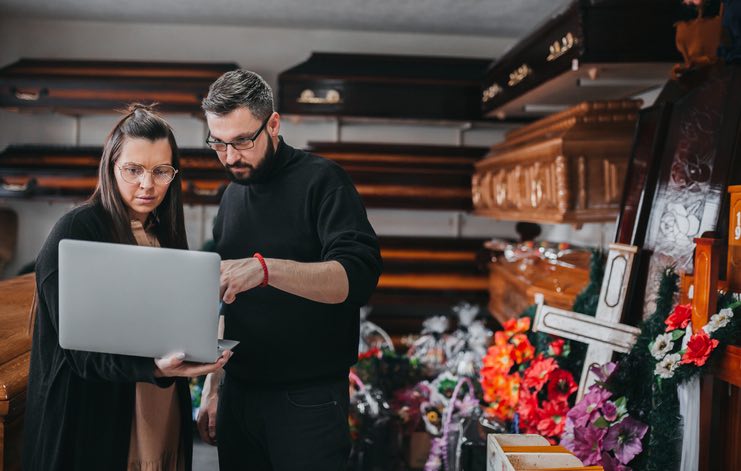
When you call a funeral home, they can help you make arrangements for a burial or cremation. It’s important to do so some research here as costs for funeral services can vary greatly.
After you make funeral arrangements, you’ll want to determine whether you’ll need financial assistance. Some people make their funeral arrangements in advance and pre-pay. In most cases, the cost of the funeral will fall on the family. Some people use crowdfunding campaigns to raise money while others take advantage of finance options
If you are deciding to have a funeral, you’ll want to choose who will be carrying the casket and any other participants.
- Call a cremation company

Although the funeral home can arrange for a cremation, some companies deal specifically with cremations. Sometimes calling a direct cremation company can cost far less than going through a funeral home.
- Call a full-body donation organization
While some people choose to have their organs donated, others choose to be body donors. If your parent has done so, be sure to follow up on their plans. If this is something you are choosing, there are many programs that will allow you to donate your loved one’s body as their next of kin.
2. Write the Obituary

Write a draft of the obituary and get feedback from family and friends. They may be able to tell you some details you missed and help you write it. If you’re not sure where to start, there are obituary templates available to get you started.
Publishing an obituary in the newspaper can cost a few hundred dollars, but publishing it online is typically free.
3. Get a Legal Pronouncement of Death
If your parent died in the hospital, a doctor would take care of this paperwork. But, if they passed at home or somewhere else, you’ll need to get this on your own.
If your loved one died while in hospice care, call your hospice nurse. If your family member was not in the hospital or hospice, call 911 and they can direct you.
4. Notify Close Friends and Family

You’ll want to notify family and close friends of your parent’s death as soon as possible. Sharing the news over the phone or in person is usually your best option. A text message or a social media post is not how you want to do it.
If there is a long list of people to call, ask other family members to help and split up the list.
5. Arrange Care for Pets or Any Dependents

If your parent died suddenly or had dependents, you’ll want to arrange care for them as soon as possible. The same goes for any pets.
6. Secure Major Property
If your loved one lived alone, make sure their property and any vehicles are secured. If they live in a rented property, be sure to notify the landlord, especially if the property is going to sit vacant for a while as you figure things out.
7. Notify Any Employers
Any employers need to be notified immediately or any organizations where your loved one was actively volunteering. You don’t want them worrying when they don’t show up for a few days.
What To Do Within a Few Weeks After a Parent's Death
1. Order a Headstone
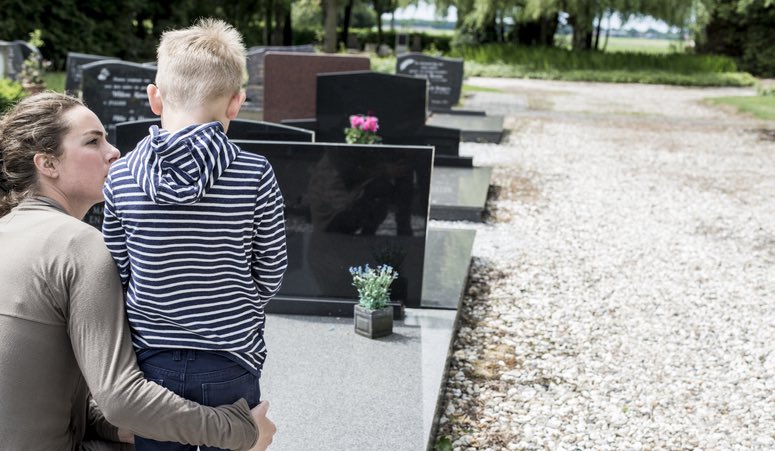
Within a few weeks of your parent’s death, you’ll want to order a headstone. These typically take a while to arrive.
2. Get Several Copies of the Death Certificate
You’ll likely need anywhere from 5-10 copies for when you go to close accounts. If your loved one had many accounts, you may need more. Your funeral director should be able to help you order these or you can get them yourself from your local city hall.
3. Begin the Probate Process with the Will

Although you are still grieving, you’ll want to start the probate process as soon as possible because many times it can take months to resolve. Some families opt to hire a probate lawyer to help, especially if they think there are items in the will that some may contest.
What to do When a Parent Dies Without a Will
If your parent doesn’t have a will, the probate court judge will name an administrator in place of an executor. You need to gather a list of your parent’s assets, financial statements, and tax returns.
Financial statements will indicate ownership of an account. If there was a joint owner, the ownership will typically pass to the surviving joint owner. In these cases, the probate of that asset may not be needed.
It’s usually recommended to get legal advice and hire a lawyer when a parent dies without a will so that everything goes to the proper channels, and nothing gets lost in the shuffle.
What to do When a Parent Dies and You are the Executor of the Will
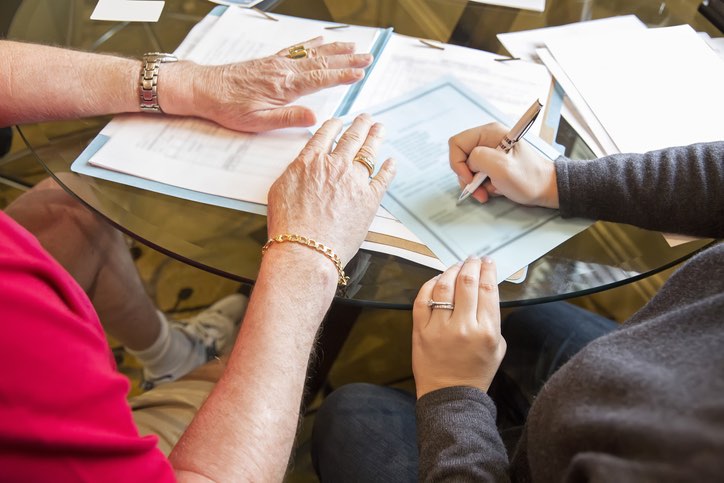
When a parent dies and you are the executor of the will, you’ll want to gather all important documents and determine whether you’ll need a lawyer. If there were not many assets or beneficiaries, some people choose to settle affairs on their own.
But, when there are many financial accounts and assets, hiring a lawyer may be a good idea.
If you are the executor, you’ll also want to review finances, and look at any retirement or investment accounts your parent had. This can help to identify assets and beneficiaries.
You will also be responsible for getting the funds to repay creditors, pay bills and divide funds according to your parent’s will.
If your parent lived in a home they owned, you’ll have to determine if you’re going to sell the house or how the mortgage will be paid.
Over the coming weeks, you’ll also want to manage any money from insurance policies as well as pay off any debts or loans that were left behind. You’ll also have to continue the notification process and cancel any utilities, credit cards, subscriptions, or memberships.
Entities to Notify When a Parent Dies
There are government agencies that need to be notified when a parent dies as well as other companies.
1. The Social Security Administration
If your parent was receiving Social Security benefits, you’ll need to stop the checks. Some family members may be eligible for death benefits from Social Security. Contact your local SSA office to notify them and they will let Medicare know of your loved one’s passing.
2. Banks and Financial Institutions
If you shared joint accounts with your deceased loved one, you’ll need to tell the bank that they’ve died. If your name is on the account as well, you’ll have full access to the funds when your loved one dies.
In cases when the deceased was the sole owner of a bank account, the bank will release funds to the person who was named beneficiary once it is notified of the account holder’s death.
Many banks allow their customers to name a beneficiary or set the account as Payable on Death or Transferable on death. A death certificate is necessary to release funds.
3. Life Insurance Companies
A death certificate and policy numbers are needed to make claims on any policies held by your parent.
4. Financial Advisors
Look at the beneficiary listed on the accounts. The beneficiary may get access to the account or benefit by just filling out a form, depending on the type of asset. If you do inherit money from an account, don’t forget about the taxes. You are responsible for paying any taxes earned on the account once your loved one dies.
5. Credit Agencies
You’ll want to prevent identity theft by sending a copy of the death certificate to one of three major credit bureaus, Equifax, Experian, or TransUnion. If you alert one, that is sufficient because one will tell the others.
Other Tasks That Need to be Taken Care of After a Death
There are also other tasks that will need to be taken care of once a parent dies.
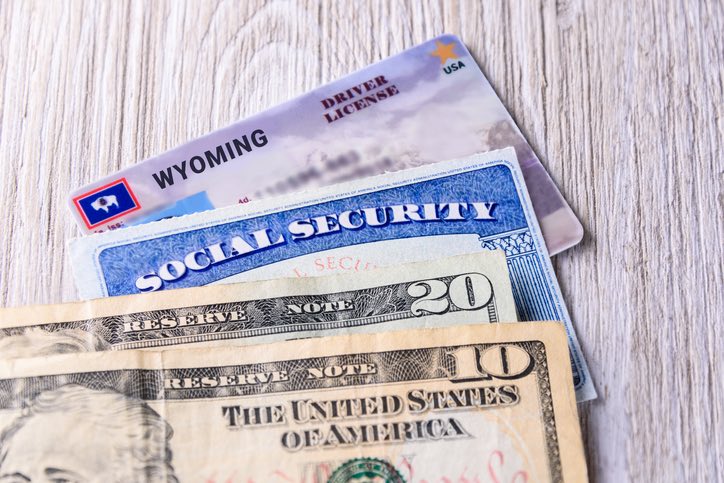
1. Cancel Their Driver's License
You’ll need a copy of the death certificate to cancel a driver’s license and remove your parent’s name from the department of motor vehicles’ records. This is another move that helps to prevent identity theft.
2. Close Credit Card Accounts
You’ll also need a copy of the death certificate to close any credit card accounts. If a credit card account is shared with someone else who intends to continue using the card, you’ll want to make sure your parent’s name is off the account.
3. Terminate Insurance Policies
Contact providers to end coverage for any insurance policies such as home, health, and auto. Any unused premium should also be returned.
4. Close Email Accounts
Shut down your parent’s email account to prevent identity theft. Many companies require a death certificate and verification that you are a relative or executor of the estate to cancel an email account.
5. Update Voter Registration
Each state is different when it comes to removing the deceased from the voting rolls. Contact your local agency and follow the rules they lay out for you.
What NOT to Do After a Parent Dies
While there are plenty of things to take care of when a parent dies, there are several things you don’t want to do. These include:
1. Don't Sell Their Assets
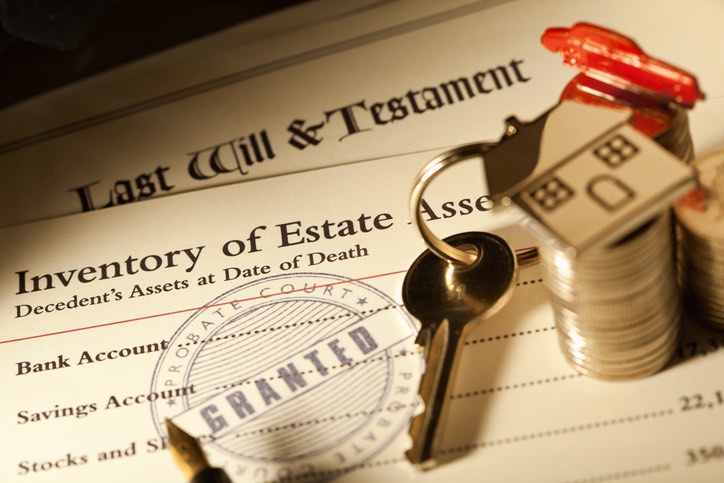
If assets are going through probate, you don’t have the authority to sell anything that is not yours.
2. Don't Wait to Alert the Social Security Administration
You’ll want to alert the SSA as soon as possible to avoid receiving payments after a parent dies.
3. Don't Clean Out Their Home or Apartment Too Soon

You don’t want to get rid of items or clean out the home too soon because you may get rid of items that should be kept.
4. Don't Promise or Give Away Any Assets to Loved Ones
If there is a will, you don’t want to promise any items to loved ones that may have already been designated for someone else.
5. Don't Drive Their Vehicles
You don’t want to drive a parent’s vehicle once they die because the insurance may no longer be valid. If you get into an accident, you will be liable.
6. Don't Allow Other People to Stay on Their Property
Until the probate process is over, you don’t want anyone to live or stay briefly on your parent’s property.
With the list of things that you should and should not do when a parent dies, you don’t want to forget to take care of yourself. Without the proper self-care, you won’t be able to take care of your responsibilities and could find yourself in poor health.
The Bottom Line
When adult children are dealing with the death of a parent, they have a huge list of responsibilities as they work through their own grief.
From dealing with financial issues to trying to handle property issues, there is a lot on your plate. Taking your time to complete tasks can prevent things from falling through the cracks.
Seeking legal advice when needed can also help things to get done properly. Asking for help and taking care of yourself is also important as you deal with the death of a parent.
For a step-by-step guide for what to do after your parents die, get our downloadable Checklist for After the Loss of a Parent.

